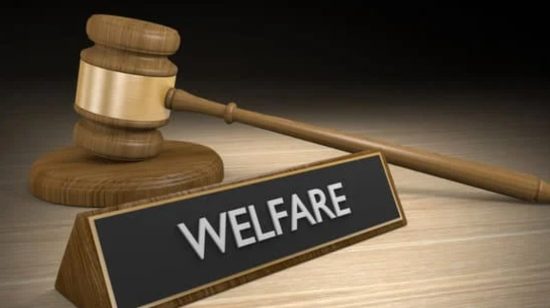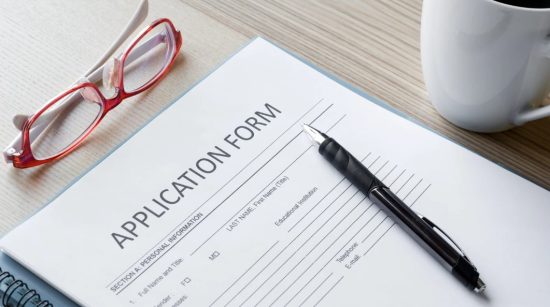Welcome to the complete guide on How to Apply for PIP! Personal Independence Payment (PIP) is a UK government benefit designed to help individuals with long-term disabilities or health conditions. Whether you are new to the system or have previously applied, this guide will provide you with all the necessary information and step-by-step instructions on how to apply for PIP successfully.
From eligibility criteria to filling out the application form, we have got you covered. By following this guide, you can ensure that your application process goes smoothly and increases your chances of receiving the financial support you need. Let’s get started on your journey towards accessing PIP benefits!
What is PIP (Personal Independence Payment)?

PIP, which stands for Personal Independence Payment, is a welfare benefit provided by the UK government to support individuals aged 16 to State Pension age who have a long-term health condition or disability. It is designed to assist with the additional costs associated with living with a disability or health condition.
PIP focuses on an individual’s mobility and ability to carry out daily living activities. The amount awarded through PIP is based on an assessment of the individual’s functional capacity and how their condition impacts their daily life. The goal of PIP is to provide financial assistance and support to help individuals maintain their independence and improve their quality of life.
Eligibility Criteria for PIP
To qualify for Personal Independence Payment (PIP), follow these essential criteria:
- Age Requirement: You must be at least 16 years old to apply for PIP.
- Long-Term Health Condition or Disability: You should have a long-term physical or mental health condition that significantly affects your ability to perform daily tasks or move around independently.
- Persistence of Difficulties: These challenges must persist for at least 12 months or longer, indicating the need for ongoing support.
- Assessment Process: To assess eligibility, take the online Personal Independence Payments test, which evaluates various aspects of daily life and functioning.
- Residents of Scotland: If you reside in Scotland, inquire about the Adult Disability Payment, which replaces PIP. Ensure to request this specific benefit.
By understanding and meeting these criteria, you can determine your eligibility for PIP or Adult Disability Payment in Scotland and secure the necessary financial support.
Required Documents for PIP Application

When applying for Personal Independence Payment (PIP), gather the following essential documents and information:
- Contact Details: Provide your telephone number for communication purposes throughout the application process.
- Proof of Age: Include your date of birth as evidence of meeting the age eligibility requirement.
- National Insurance Number: If available, include your National Insurance number to verify identity and maintain accurate records.
- Bank Details: Provide your bank or building society account number and sort code for direct payment deposits.
- Medical Information: Include the name, address, and telephone number of your doctor or health worker involved in managing your health condition.
- Care History: List dates and addresses of any time spent in care homes or hospitals to assess the level of care required during those periods.
- Travel History: If applicable, provide dates and countries visited during trips abroad lasting more than four weeks. While PIP typically does not cover expenses incurred abroad, this information aids in understanding potential impacts on mobility.
Ensure all documents are accurate and detailed, highlighting how they relate to the challenges faced due to long-term health conditions. By providing comprehensive information, you enhance the likelihood of a successful PIP application outcome.
How to Apply for PIP?

Applying for Personal Independence Payment (PIP) involves several important steps. Here’s a general guide on how to apply:
Check Eligibility
Ensure you meet the eligibility criteria for PIP, which is tailored for individuals aged 16 to State Pension age with long-term health conditions or disabilities. Review the specific criteria outlined by the government to confirm your eligibility.
Gather Information
Collect personal details, contact info, National Insurance number, and comprehensive information about your health conditions. Ensure to include specific details about how your conditions affect your daily life and ability to carry out tasks.
Start Application
Choose between applying online via the official PIP website or by phone through the Department for Work and Pensions (DWP). Ensure that you have a stable internet connection if applying online and have all necessary information readily available if applying by phone.
Complete Form
Provide accurate details about your condition, its impact on daily life, and any healthcare professionals involved. Include supporting documents like medical reports, prescriptions, and letters from healthcare providers to strengthen your application.
Submit Application
Ensure all sections are completed accurately before submission, either online or by mail. Double-check for any errors or missing information before finalizing your application to avoid delays in processing.
Attend Assessment
Be prepared for a possible face-to-face assessment to evaluate your eligibility for PIP. Bring additional evidence related to your condition, if required, such as medical records or statements from caregivers or support workers.
Await Decision
The DWP will review your application and assessment report before making a decision. You’ll receive a letter notifying you of their decision and any granted PIP amount. It’s essential to stay patient during this waiting period and be prepared to provide further information if requested by the DWP.
Note: Process may vary slightly by location. Stay informed and follow instructions carefully throughout the application process to ensure a smooth and successful outcome.
What to Expect After Applying for PIP?

After applying for Personal Independence Payment (PIP), expect a wait of three to eight months for a decision after your initial application. Following the assessment, anticipate another 8 to 12 weeks for a decision letter from the Department for Work and Pensions (DWP).
Successful claims result in PIP payments, possibly backdated from the application date. Individual experiences vary, so consult official resources or specialized organizations for guidance. Patience is key during this process, staying informed and hopeful for fair consideration and support.
How Much is PIP?
PIP rates are crucial when applying for Personal Independence Payment, offering vital financial support. Recently increased by 10.1% for 2023/2024 to match inflation, these rates help applicants understand their potential eligibility. For daily living, the enhanced rate is £101.75, while the standard rate is £68.10, aiding those with long-term health conditions.
Mobility component rates stand at £71.00 for enhanced and £26.90 for standard, supporting individuals facing transportation challenges. While these figures provide an overview, actual payments may vary based on individual assessments during the application process.
It’s advisable to consult official government sources or specialized organizations for accurate information tailored to your circumstances.
Tips for a Successful PIP Application

When applying for Personal Independence Payment (PIP), a few tips can help increase your chances of a successful application.
- Gather all necessary documents before starting the application, including personal details, medical reports, and prescriptions.
- Provide accurate and detailed information about your condition and its impact on your daily life.
- Include names and contact details of healthcare professionals involved in your care.
- Take your time to complete the application form accurately, double-checking all provided information.
- Be prepared to discuss your condition in detail if attending an assessment.
- Provide additional evidence if requested during the assessment stage.
- Be patient throughout the process, as it may take several months.
- Understand that each case is unique, and results may vary based on individual circumstances.
By following these tips and being thorough in providing supporting evidence for your claim, you’ll have a better chance at a successful outcome when applying for PIP.
Conclusion
In conclusion, applying for PIP can be a daunting and overwhelming process, but with this complete guide, you now have all the information you need to navigate through it successfully. Remember to gather carefully and present evidence of your condition, thoroughly fill out the application form and seek support from organizations or individuals who are knowledgeable about PIP. With patience and determination, you can increase your chances of receiving the financial assistance that you deserve. Good luck on your PIP journey!
FAQs – How to Apply for PIP?
1. How long does it take to hear back from PIP after applying?
On average, it takes the Department for Work and Pensions (DWP) 20 weeks from the date you started your claim to make a decision on your PIP application. However, it can take less time (sometimes as little as 3 weeks) or longer (up to 8 months), depending on your individual circumstances, such as the complexity of your case or the need for an assessment.
2. How will I know if I have been accepted for PIP?
You will receive a letter from the DWP informing you of the decision. The letter will detail whether your claim was approved, partially approved, or rejected. If approved, the letter will also specify the amount and type of award you receive (daily living or mobility component).
3. What are the stages of getting PIP?
There are typically four main stages to the PIP process:
- Making your claim: You submit your application form and supporting evidence.
- Telephone assessment: An assessor may contact you for a phone call to discuss your claim and gather more information.
- Face-to-face assessment (optional): If needed, a health professional will assess your needs in person.
- Decision and notification: The DWP reviews all information and makes a decision on your award.
4. What conditions are most likely to be awarded PIP?
There is no definitive list of conditions automatically qualifying for PIP. However, awards are more likely for individuals with long-term physical or mental health conditions that significantly impact daily living or mobility. Examples include:
- Arthritis
- Chronic pain
- Cancer
- Stroke
- Parkinson’s disease
- Mental health conditions like anxiety or depression
5. Can I check PIP status online?
Currently, there is no online system to check your PIP application status. However, you can:
- Call the DWP PIP enquiry line: 0800 121 8422
- Contact your local Jobcentre Plus office
- View your online journal if you have used your Government Gateway account to make your claim.

